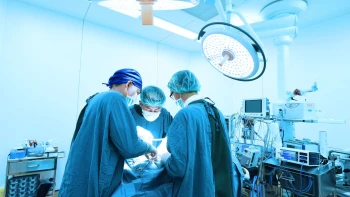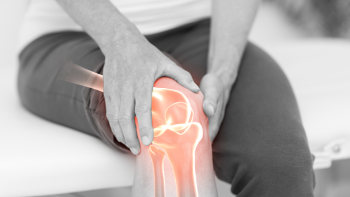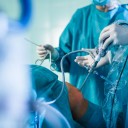Recommendations prior to arthroscopic meniscus surgery

- What do I need to know about meniscus surgery by arthroscopy?
- What should I do before meniscus surgery?
- Preparing the home for recovery
- Recommendations for the days leading up to the meniscus surgery
- Recommendations if you are going to have meniscus surgery by arthroscopy at Operarme
- Although meniscus surgery by arthroscopy is one of the most common surgeries, it is necessary to take into account a series of recommendations.
- Among others, it is advisable to have some help at home in the weeks following surgery to avoid excessive bending of the knee.
- In this article, we explain the various recommendations prior to meniscus surgery by arthroscopy.
What do I need to know about meniscus surgery by arthroscopy?
- Hospital stay: After the arthroscopic meniscus operation, the patient spends one night in hospital so that the medical team can make sure that everything has gone well. The following day, you can go home and start your recovery.
- Duration of surgery: Meniscus surgery lasts approximately 30 to 60 minutes, depending on the severity of the tear.
- Anaesthesia for the intervention: This surgery can be performed under spinal anaesthesia and sedation, where the lower body is anaesthetised and the patient is put to sleep, or under general anaesthesia, where the patient is fully anaesthetised. Although the former is more common, everything will depend on the patient and the professional opinion of the doctor and the anaesthetist.
- Surgical techniques: As the name suggests, the method of approach in this procedure is by arthroscope, which is a surgical tool that allows the doctor to see inside the joint, in this case the knee, without the need to make a large incision, thus favouring recovery. Also, while the approach may be arthroscopic, the surgeon can then perform two techniques to repair the meniscus. The use of one or the other will depend on the area where the injury has occurred, although it is usual for both to be affected and a mixture is necessary. These techniques are:
- Partial meniscectomy: This is usually carried out in injuries in the non-vascularised area (which does not receive blood) as it cannot regenerate by itself and the only thing it will cause is friction in the cartilage and other components of the knee.
- Meniscal suture: In this case what is done is a suture in the vascularised area of the meniscus, as in this case it can regenerate by receiving blood.
- Recovery after surgery: Total recovery after meniscus surgery by arthroscopy usually varies between 1 and 3 months, although it can take up to 6 months. Whether recovery after this surgery lasts longer or shorter will depend on the intensity with which the patient takes the rehabilitation, the age and regenerative capacity and above all the severity of the injury. After this intervention, it is possible to return to sport without any problem, although it will be necessary to consult with the specialist and a physiotherapist to avoid over-exerting oneself.

Do you need meniscus surgery?
Request a free and immediate appointment with our specialists in traumatology
What should I do before meniscus surgery?
- Signing the informed consent form: The signing of the informed consent form is obligatory in any type of surgery, as the patient certifies that all possible complications have been explained to him/her and that he/she authorises the surgeon to carry out the operation.
- Preoperative: As with any other surgery, arthroscopic meniscus surgery requires a preoperative examination to ensure that the surgeon and anaesthetist know that the patient is fit for surgery. The preoperative period usually consists of an electrocardiogram, a complete blood analysis and, in some cases, a chest x-ray, the latter at the request of the specialist.
- Inform the traumatologist of any of the following problems: There are a number of things that the patient should tell the doctor at all times. Normally the doctor will ask, but it is important to be clear that you must tell him/her:
- Allergies: In the event that the patient has ever had problems with anaesthetics, allergies to latex or to any metal that may be used during surgery it is important to say so in order to avoid any possible complications.
- Medications: You should tell your doctor about any prescription or over-the-counter medications you are taking, as these could affect the outcome of the surgery. You should also mention if you are taking any herbal medications.
- Anticoagulant medication: This is most important. If the patient is taking anti-inflammatory or other anticoagulant medication such as Sintrom, it is very important to tell the surgeon so that it can be controlled during the surgery. Sintrom will usually be suspended several days before surgery and anticoagulant treatment with subcutaneous heparin may be used, although this should always be indicated by the specialist.
- Pregnancy: If the patient believes she is or may be pregnant, it is vital to tell the specialist to avoid any potential problems.
- Associated chronic illnesses: Such as diabetes, asthma, respiratory problems, heart problems, etc. The doctor must be informed of these to ensure that the patient is suitable for the procedure.
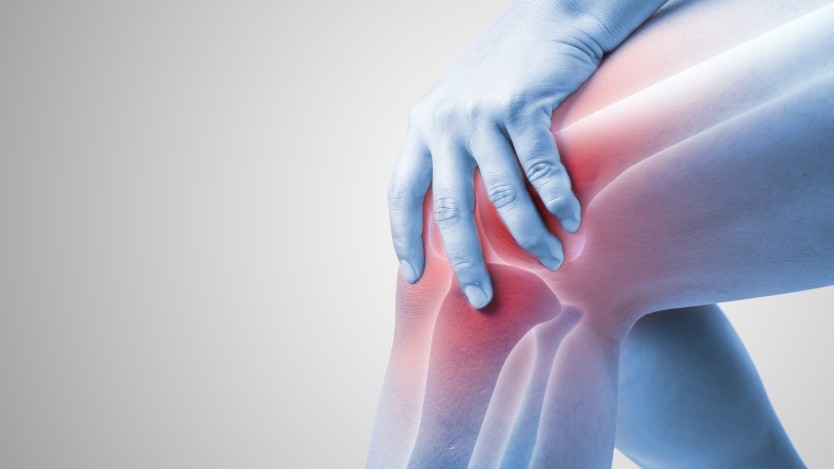
Preparing the home for recovery
- Where to sleep: If the patient's house has several floors, it is important that the area where the patient will sleep is located on the ground floor to avoid having to go up and down stairs during the first few days. It is also advisable to elevate the mattress to avoid excessive bending of the knee when getting up.
- Everyday objects: Place everything that is used regularly at a medium distance so that the patient does not have to bend down or stretch to pick anything up.
- Bathing: One of the main recommendations is to place some kind of non-slip material in the bathtub to avoid unexpected falls that could damage the operated knee. It may also be advisable to raise the toilet to avoid bending the knee.
- Remove cables and rugs: The main purpose of this recommendation is to prevent falls.
- Extend the space: Since mobility will initially be reduced and a crutch may even be needed to help with support, it is important to extend the space between furniture to prevent bumps and falls.
- Cushion for the armchair: As in the bathroom, it may be necessary to avoid bending and overstressing the operated knee, so a cushion that slightly elevates the patient may be of interest.
- Crutch: To avoid putting all the weight on the operated knee, it is recommended to use a crutch for the first few weeks.
- Comfortable clothes: Wearing tracksuits and trainers is recommended after this type of surgery, as jeans and shoes that are difficult to put on can cause stress on the joint, which is not good.
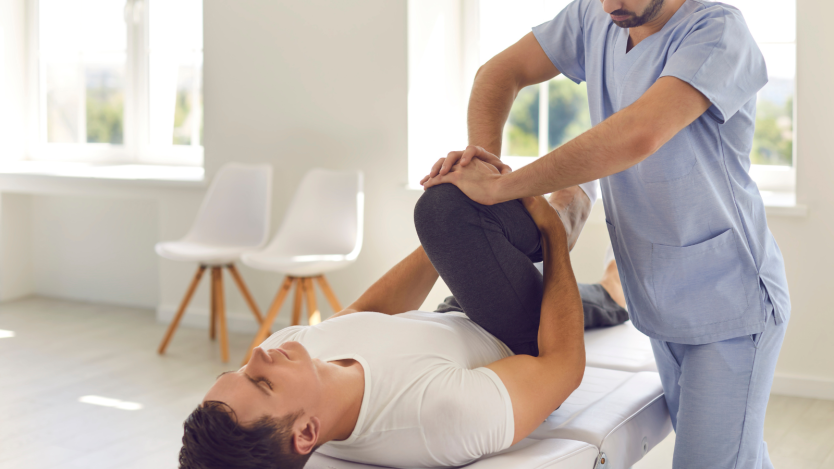
Recommendations for the days leading up to the meniscus surgery
- No smoking: Smoking is never good, but smoking before an operation is worse, as smoking causes circulation problems, delaying healing and, consequently, recovery.
- Do not drink alcohol: Drinking alcohol is not good either, but it should be avoided at least 48 hours before arthroscopic meniscus surgery.
- Empty stomach for admission day: Do not eat or drink anything for 8 hours before the operation.
- Arrange for help at home: It is important that the patient has someone at home for the first few weeks to help them with day-to-day living as their mobility will be reduced. This should be discussed before surgery.
- What to wear and what not to wear to the hospital: No contact lenses, no make-up, no jewellery, no necklaces, no watches, etc. The most important thing is to wear comfortable shoes that do not slip and that grip the foot well.
- Plan rehabilitation with a physiotherapist: It is possible to carry out rehabilitation following the doctor's advice, although it is advisable to have a physiotherapist with you during the first few months to guide you through the recovery process, especially if you are a sports patient.
Recommendations if you are going to have meniscus surgery by arthroscopy at Operarme
- Transfer service: Operarme provides you with a taxi to take you from your home to the hospital on the day of admission. This must be indicated 48 hours before admission, so please contact your patient care advisor or contact us via the website.
- Speak to your patient service advisor: Each of our patients is assigned a patient service advisor who will guide you through the whole process, answer any questions or problems and help you in any way they can.
- Talk to our specialist: The consultation is free, immediate and without obligation. During the consultation, do not hesitate to ask the specialist any questions you may have. They are used to these surgeries and will explain everything well.
- Read what other patients have to say: The meniscus operation by arthroscopy is one of the most performed surgeries at Operarme, with some of our patients having left us a testimonial about the process.
Make a free appointment with one of our specialists and regain your quality of life by clicking below:

Do you need meniscus knee surgery?
Request a free and immediate appointment with our specialists in traumatology
Medical disclaimer: All the published content in Operarme is intended to disseminate reliable medical information to the general public, and is reviewed by healthcare professionals. In any case should this information be used to perform a diagnosis, indicate a treatment, or replace the medical assessment of a professional in a face to face consultation. Find more information in the links below:

